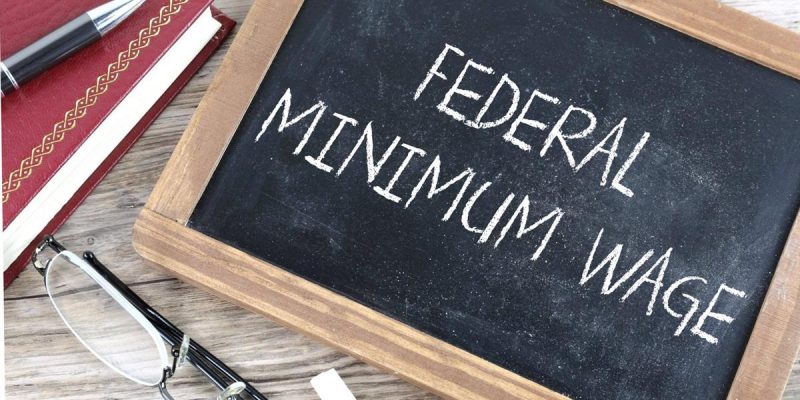As they seek to pass another COVID relief bill (relief from government-imposed business closures, more than the virus), our intrepid Congresspersons have included many unrelated measures they hoped to shield from scrutiny. Among these, while less troubling than the profligate defense spending and bailouts, is one bad idea which may impact Americans even more: raising the minimum wage to $15 per hour. Many advocates will say that people deserve a “livable wage,” but is the minimum wage really the same as a livable wage? Is it fair to use the two terms interchangeably? The answer is a resounding ‘no.’
The Minimum Wage is and Always Will be Zero
The economics of a minimum wage sound easy enough. If you move it from 10 dollars an hour to 15 dollars an hour, everyone making 10 dollars an hour is instantly 5 dollars an hour richer, right? Wrong. That will be true for some, but other workers simply do not produce 15 an hour in value for a business. Those people have been made officially unemployable. Employers will, instead, automate, outsource, or just plain eliminate those positions. So that’s what I mean when I say the minimum wage is and always will be zero. If the choice is 5 dollars an hour while you work towards something better, or no job and no path forward, many would prefer to take the 5 an hour. Some will not. We should not stand in the way of that choice.
“Unfortunately, the real minimum wage is always zero, regardless of the laws, and that is the wage that many workers receive in the wake of the creation or escalation of a government-mandated minimum wage, because they lose their jobs or fail to find jobs when they enter the labor force. Making it illegal to pay less than a given amount does not make a worker’s productivity worth that amount — and, if it is not, that worker is unlikely to be employed.” — Thomas Sowell
The Racist History of the Minimum Wage
So if some employees will lose their jobs when the minimum wage is increased, who are the first to go? Low-skilled workers are the first to be pushed out of their job. When minimum wages were first implemented, the low skill workers were predominantly Black people. They knew that creating a minimum wage would push Blacks out of the work force. That was the goal.
From Eugenics and Economics in the Progressive by Thomas C. Leonard:
“Progressive economists, like their neoclassical critics, believed that binding minimum wages would cause job losses. However, the progressive economists also believed that the job loss induced by minimum wages was a social benefit, as it performed the eugenic service ridding the labor force of the “unemployable.” Sidney and Beatrice Webb (1897 [1920], p. 785) put it plainly: “With regard to certain sections of the population [the “unemployable”], this unemployment is not a mark of social disease, but actually of social health.” “[O]f all ways of dealing with these unfortunate parasites,” Sidney Webb (1912, p. 992) opined in the Journal of Political Economy, “the most ruinous to the community is to allow them to unrestrainedly compete as wage earners.” A minimum wage was seen to operate eugenically through two channels: by deterring prospective immigrants (Henderson, 1900) and also by removing from employment the “unemployable,” who, thus identified, could be, for example, segregated in rural communities or sterilized.”
The Moral Superiority of Freedom
Regardless of all of these negative outcomes, we have to talk about the morality of telling someone they are unable to work for anyone at any price. If John wants to pick blueberries for five dollars an hour, and he thinks that is an effective use of his time, who am I or anyone else to say that he shouldn’t be allowed to do that? The truth is, in a free nation, employees and employers are able to make the determination of each other’s worth on their own. An employee should be allowed to enter into whatever mutually beneficial deal they think is fair to them, to their best advantage. If it’s not, they shouldn’t enter into it, and can choose from among other available options.
Conclusion
Today’s advocates for minimum wage are not the racist progressive eugenicists of the early 20th century. But ill intent is not required for poor outcomes. Intentions don’t matter. Outcomes do. A minimum wage is not synonymous with a livable wage as poor, low skilled workers are hit the hardest by the unintended consequences of reducing the number of available jobs. Often we do not help them earn, we condemn them to unemployment. Zero dollars an hour is not a livable wage.
“Federal Minimum Wage” by Nick Youngson is licensed under CC BY-SA 3.0.

